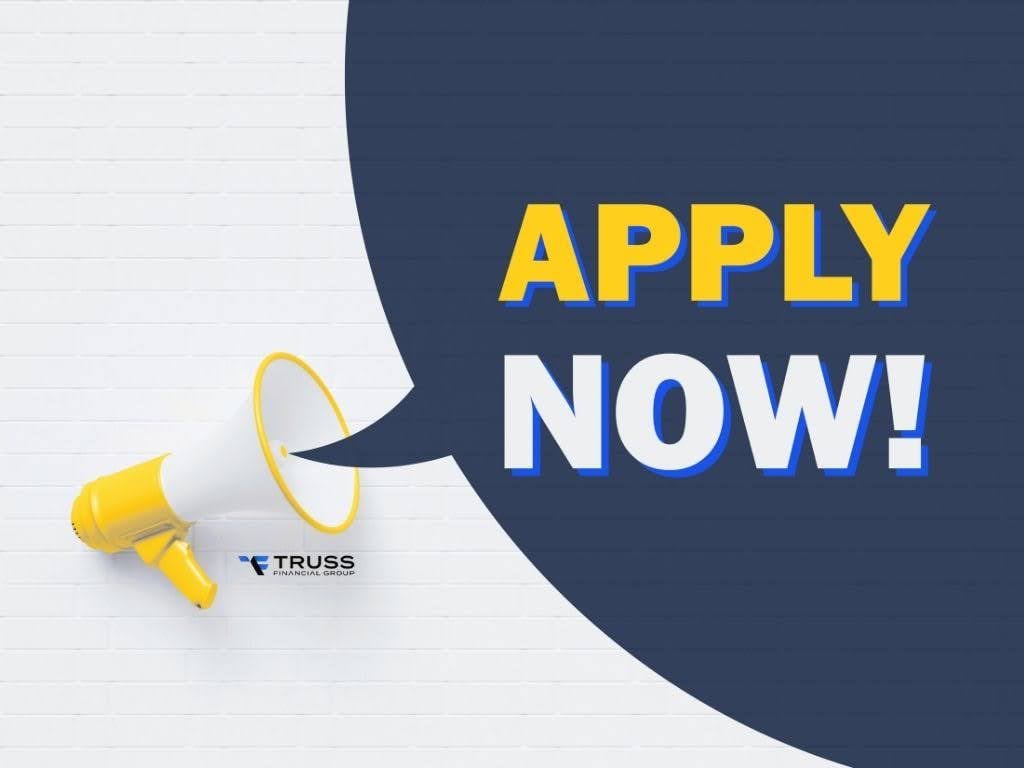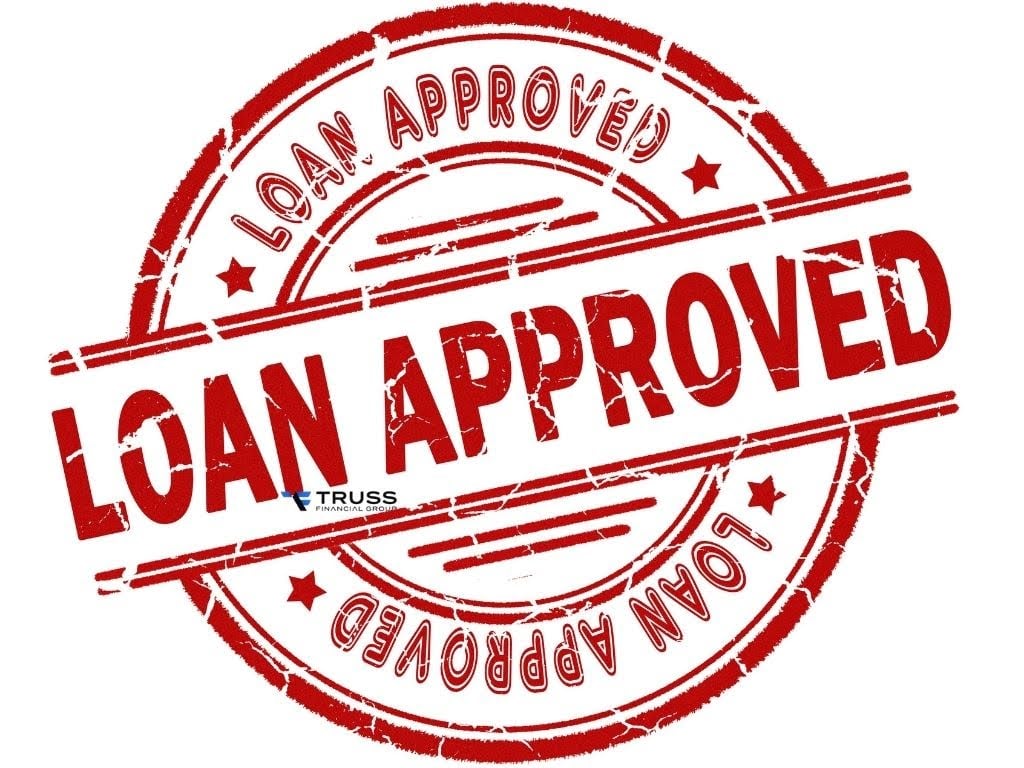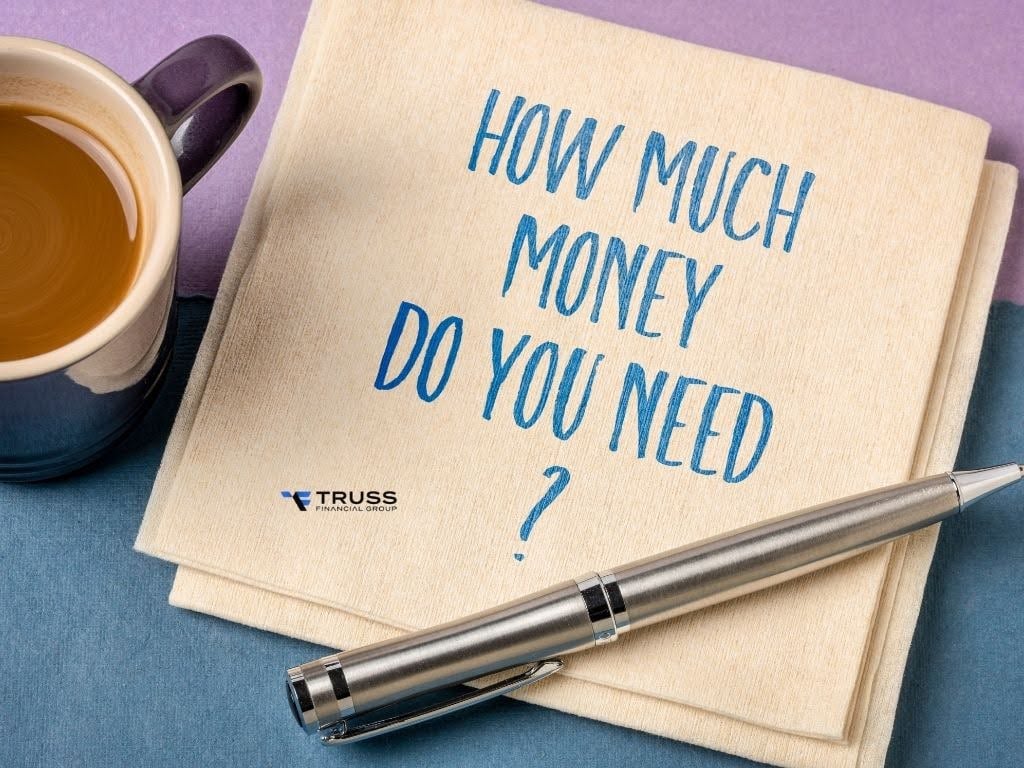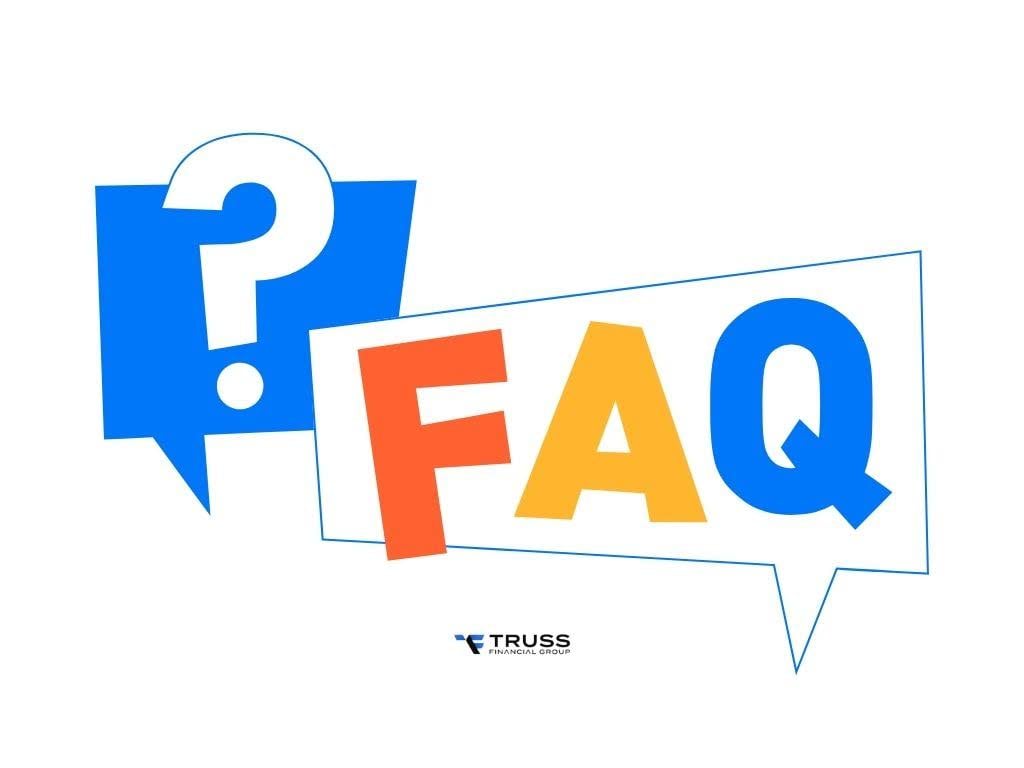Home Loans in North Carolina
Buying a home in Charlotte, Raleigh, Durham, Greensboro, Wilmington, Asheville, Cary, or Fayetteville? Choose a mortgage lender that helps you pick the right home loan, not only the lowest teaser rate.
Truss Financial Group serves borrowers statewide with Conventional, FHA, VA, USDA, Jumbo, HELOC, and Non-QM options, including bank-statement loans, DSCR loans, and asset-depletion programs. If you are a first-time buyer, we also review NC Home Advantage down-payment assistance so you do not miss available benefits.
4.6 from 700+ reviews
4.6 from 700+ reviews
4.6 from 700+ reviews
Key Takeaways
- Statewide lending through Truss Financial Group as your North Carolina mortgage broker.
- Programs: Conventional, FHA, VA, USDA, Jumbo, HELOC, Non-QM.
- Non-QM choices include bank-statement, DSCR, and asset-depletion.
- TFG specialties: DSCR below 1.0 (case-by-case) and a fast Digital HELOC flow.
- Typical qualifying targets many lenders use: Conventional ~620+, FHA from 580, DTI near or below 45 percent, and steady two-year employment history.
- First-time buyer help: NC Home Advantage Mortgage and NC 1st Home Advantage Down Payment for eligible borrowers.
- The process: pre-approval → home search → appraisal → underwriting → closing.
- Property taxes are generally lower than the national average in many NC counties; budget with local figures.
Areas We Serve
We lend across the State of North Carolina. Our team regularly helps home buyers and homeowners in Charlotte, Raleigh, Durham, Greensboro, Wilmington, Asheville, Cary, and Fayetteville, as well as the surrounding counties.
If you live outside these cities, we can still assist you with the same care and speed.
What Are the Options for a Home Loan in North Carolina?
North Carolina home buyers can choose from several loan types depending on credit, income and property type:
| Loan Type | Ideal For | Down Payment | Typical Credit | Key Benefit |
| Conventional | Strong credit borrowers | 3%–20% | 620+ | Low PMI options and broad property use |
| FHA | First-time or credit-rebuilding | 3.5% at ≥580 | 580+ | Easier qualification and flexible DTI |
| VA | Eligible veterans and service members | 0% | Lender-set | No monthly PMI |
| USDA | Rural-eligible buyers | 0% | Lender-set | 100% financing if area and income qualify |
| Jumbo | High-priced homes | 10%–20% | 700+ typical | Larger loan amounts |
| NC Home Advantage | Eligible NC residents | 0–3% effective with assistance | Program-set (often ≥640) | Down-payment and closing-cost help |
| Bank-Statement (Non-QM) | Self-employed | 10%–20% | Alt-doc | Qualify with deposits instead of tax returns |
| DSCR (Non-QM) | Investors | 20%+ | Alt-doc | Qualify using property cash flow |
| HELOC / HELOAN | Owners with equity | Varies | Varies | Tap home equity for projects or consolidation |
North Carolina home buyers can choose from several loan types depending on credit, income and property type:

Conventional Loans
Good for borrowers with solid credit, steady income, and a moderate down payment. If the loan amount exceeds your county’s conforming limit, you move into Jumbo territory.
Best for: primary homes, second homes, and many investment properties.
FHA Loans
Designed for buyers building or rebuilding credit. Minimum 3.5 percent down at 580 or higher; some lenders consider 10 percent down at 500–579.
Best for: first-time buyers and credit-rebuilding files.
VA Loans
For eligible veterans and service members. Zero down in many cases and no monthly PMI for primary residences.
Best for: minimizing cash to close with strong terms.
USDA Loans
Zero down in eligible rural areas, subject to income limits and property maps. We verify property eligibility and household income before you write an offer.
Best for: buyers open to USDA-eligible ZIP codes.
Jumbo Loans
For homes above conforming limits. Expect stronger reserves, higher scores, and conservative DTIs. We price several investor options to balance payment and cash to close.
Best for: high-value homes and unique properties.
NC Home Advantage Mortgage (State DPA)
State-backed assistance that can provide up to a percentage of the loan amount toward your down payment or closing costs, paired with an eligible first mortgage. Income limits and purchase-price caps apply and are updated from time to time.
Best for: first-time and move-up buyers who need help with cash to close.
Also ask about: NC 1st Home Advantage Down Payment grant options where eligible.

Non-QM and Investor Solutions (TFG Specialties)
Bank-Statement Loans
Qualify using business or personal deposits when tax returns do not reflect true cash flow.
DSCR Loans
Underwritten to the property’s rent and projected PITI rather than your W-2 income.
TFG specialty: DSCR below 1.0
If cash flow is temporarily negative, we review reserves, equity, and rent trends case by case. Availability depends on investor guidelines.
Asset-Depletion Programs
Turn verified assets into qualifying income using program formulas.
Interest-Only Options
Lower the required payment for a defined period, often used by investors planning improvements or a sale.
Home-Equity Options
HELOC vs Fixed-Rate HELOAN
Compare the flexibility of a variable line with the stability of a fixed installment loan.
Digital HELOC (TFG Specialty)
Apply online, upload documents, and track progress in a streamlined workflow designed for speed without sacrificing underwriting quality.
What Credit Score Is Needed to Buy a House in North Carolina?
- Conventional: typically 620+.
- FHA: 580+ with 3.5 percent down; some lenders consider 500–579 with 10 percent down.
- VA and USDA: no hard agency minimums; lenders set practical floors and consider the entire file.
- NC Home Advantage: often 640+ with program income and price limits.
Mini FAQ:
Q: Can I buy a home in North Carolina with bad credit?
A: Yes, FHA and NC Home Advantage loans are designed to help lower-credit borrowers qualify with additional documentation.

How Much Money Do You Need to Buy a House in North Carolina?
Your required down payment depends on the loan program and your credit profile. Many buyers qualify with only a small percentage down, and some programs allow zero down when you meet eligibility rules. Remember that you will also budget for closing costs and prepaids; we can model total cash to close for your county.
Typical minimums
- Conventional: 3 to 5 percent for many first-time or well-qualified buyers. Private mortgage insurance applies with less than 20 percent down and can drop later.
- FHA: 3.5 percent with 580+ credit. Some lenders allow 10 percent down at 500–579.
- VA and USDA: Zero down if you are eligible and the property meets program rules.
- NC Home Advantage: Can reduce or cover part of your down payment and closing costs, subject to program income and price limits.
Quick comparison
| Loan Type | Minimum Down | Eligible Buyers |
| Conventional | 3% | First-time and repeat |
| FHA | 3.5% | Lower-credit borrowers |
| VA | 0% | Eligible veterans and service members |
| USDA | 0% | Rural-eligible buyers |
| NC Home Advantage | 0–3% effective with assistance | Qualifying residents |
Helpful notes: Gift funds and approved down-payment assistance can satisfy part of your requirement. Strong credit, lower DTI, and extra reserves may improve pricing. Ask us to compare Conventional, FHA, VA, USDA, and NC Home Advantage side by side and show the exact cash to close for your county.
Our North Carolina Mortgage Programs
- NC Home Advantage Mortgage: Down-payment and closing-cost assistance for eligible buyers. Can be paired with FHA or Conventional financing. We verify income limits, purchase-price caps, and current assistance levels for your county.
- NC 1st Home Advantage Down Payment: Grant-style assistance for qualifying first-time buyers (and certain returning buyers who meet program rules). We will confirm eligibility and layer it with your first mortgage when it helps your total cost.
- Conventional 97: Only 3% down for qualifying first-time buyers. We compare lender-paid vs borrower-paid PMI and show the breakeven.
- FHA, VA, and USDA: Low or zero-down paths. FHA starts at 3.5% down with 580+ credit. VA and USDA can be 0% down if you and the property qualify.
- Bank-Statement and DSCR (Non-QM): For self-employed buyers and investors. Bank-statement loans qualify on deposits instead of tax returns. DSCR loans qualify on the property’s cash flow. Ask about DSCR below 1.0 case-by-case.
Mini FAQ
Q: Can NC Home Advantage be combined with FHA or conventional loans?
A: Yes, we often layer the assistance with FHA or Conventional to lower your cash to close.

What Is the Current Mortgage Interest Rate in North Carolina?
Mortgage rates change daily. They move with the bond market and depend on your profile. Lenders price your rate using credit score, down payment, DTI, loan amount, loan type, points, property type, and lock period.
North Carolina rate pages show local snapshots; national surveys provide a weekly benchmark. Use those sources for trend awareness, then get a personalized quote with a pre-approval.
How to read a quote
- Rate vs APR: APR includes certain costs for a clearer comparison.
- Points vs credits: Points can lower the rate; credits can reduce cash to close.
- Lock period: Longer locks can cost more.
- Occupancy and property type: Second homes, condos, and investment properties price differently.
Mini FAQ:
Q: How can I lock in the best rate?
A: Shop around, improve credit, and ask your lender about rate locks or discount points.
How Much Do You Need for a Down Payment for a House in North Carolina?
- Conventional: 3%–5%
- FHA: 3.5%
- VA/USDA: 0%
- NC Home Advantage: May reduce or cover your down payment entirely
Down Payment Comparison Table
| Loan Type | Minimum Down | Eligible Buyers |
| Conventional | 3% | First-time or repeat |
| FHA | 3.5% | Low-credit buyers |
| VA | 0% | Veterans & active-duty |
| USDA | 0% | Rural areas |
| NC Home Advantage | 0–3% | Qualifying residents |
Is It a Good Time to Buy a House in North Carolina?
Yes, Markets shift, but many NC buyers still gain by purchasing the right home and planning a refinance if rates improve later. Inventory has improved from the tightest years, and rents in the Triangle and Charlotte often rise faster than a fixed mortgage payment.
Market Snapshot Table
| Factor | Current Trend | Buyer Advantage |
| Home Prices | Steady | Slower appreciation |
| Mortgage Rates | Moderate | Opportunity to refinance later |
| Inventory | Improving | More listings than 2022–2023 |
| Rent Prices | Rising | Buying offers equity growth |
Apply for Your North Carolina Home Loan
Ready to get started with Truss Financial Group? Get a fast pre-approval, compare Conventional, FHA, VA, USDA, Jumbo, HELOC, and Non-QM options, and see whether you qualify for NC Home Advantage assistance. At TFG, you can get a clear budget, a plain explanation of fees and timelines, and a path to closing.

Frequently Asked Questions
- What are the main North Carolina mortgage loan requirements?
Most lenders look for 620+ credit, two years of stable income, and DTI near or below 45 percent. Some approvals go higher with strong compensating factors such as reserves, lower LTV, or excellent credit.
- Who are the top mortgage lenders in North Carolina?
Compare Truss Financial Group with banks and credit unions that serve North Carolina, including well-known retail lenders. Request the same scenario from each and compare cash to close, monthly payment, PMI, and fees on one sheet.
- Are NC Home Advantage Mortgage reviews positive?
Borrowers often like that NC Home Advantage can lower cash to close and pairs with FHA or Conventional loans. Actual experiences vary by county and lender. We will confirm current rules and show your total cost with and without assistance.
- Does North Carolina have special mortgage rates for veterans or teachers?
Yes, VA loans serve eligible veterans and service members statewide. Some county, city, or employer programs offer fee or grant assistance for educators and public-service workers. We will check what is active for your location.
- How can I calculate my North Carolina mortgage payment?
Use our calculator with price, down payment, term, and an estimated rate. Add property taxes, homeowners insurance, and any HOA to get a realistic figure, then ask us for a county-specific closing-cost estimate.
Trusted by 1,964 people
Get a free custom rate quote
- 81% approval rate
- No commitment
👉 Filling out this form won’t affect your credit score.
Get the information you need to make confident decisions
Discover your borrowing power and plan your mortgage journey with knowledge on your side.
Get a quote- No documents required
- No commitment
- No commitment
Get a quote in 3 easy steps
Tell us what you want
Fill out our online form to help us understand your financial situation and loan needs.
We get to work for you
We review your info and look for competitive rates that match your specific goals.
You get a personalized quote
You’ll receive a customized rate quote that meets your unique profile.